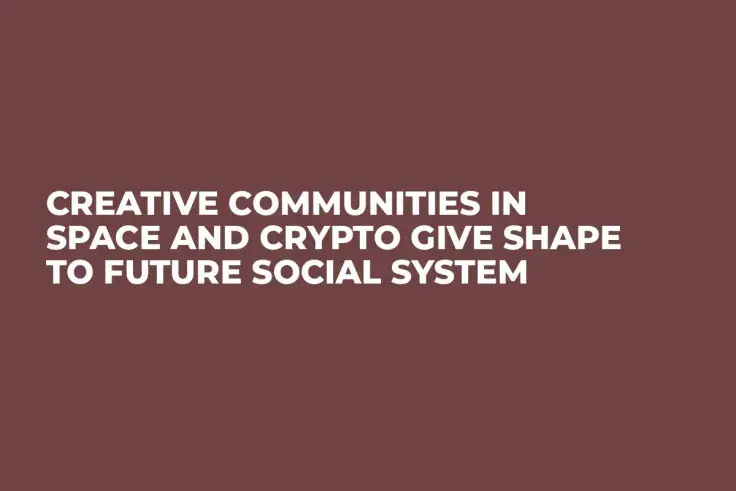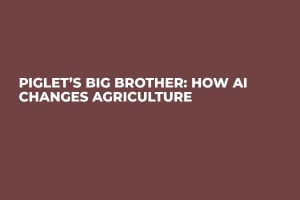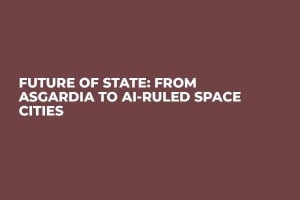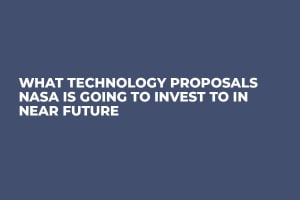Aliya Prokofieva is founder of the international space company “Galaktika,” space exploration visionary and active public speaker. She writes for U.Today on the cutting edge tech and disruptive projects that may change the life of billions of people.
Whatever sociologists say about the growing popularity of individualism in the modern world, man was, is and will be a social being. Without denying the importance of individual genii, it is necessary to recognize: it is collective actions that ensure the progressive development of our civilization.
A notable phenomenon of modern social life is communities, the new forms of social groups that Thomas Hobbes defined as "a certain number of people united by a common interest or common cause." Compared with formal teams, they are much more effective and mobile, more focused on the outcome, and reveal the individual capabilities of participants better. It is communities that have all the chances to become a link between the traditional forms of social order that prevail today and those that will replace them in the future.
Working in various projects, I was able to observe the activities of such communities and identify the criteria that they must meet in order to become successful.

What makes communities effective
Here are the conclusions I came to:
1. The community needs a goal.
It does not matter what it will be: taking care of homeless animals or finding solutions to the Navier-Stokes equations. The main thing is that
a) it is clear and concrete,
b) it had high value for a certain circle of people.
Communities without a goal or with unclear targets are not viable- this is easily seen from the example of today's Internet. Instead of interested participants, they attract a crowd of trolls, ready to kill any idea. The exchange of views on such sites quickly gets sidetracked from the means of achieving the goal itself. The result is a massive outflow of capable members and the sudden end of the community.
2. Community members should be associated with joint activities.
Groups, united by the exchange of information or the discussion of common interests, have the right to exist, but they look like blank cartridges: from what they are, the surrounding world is neither hot nor cold. Here everything is simple: if nothing is done, nothing will happen.
3. Community activities should be of public benefit, i.e. not limited to solving the personal problems of its participants, but to project the result into an external society.
The more people outside the community that feel the positive effect of his work, the higher is his social value.
For example, the social significance of a group of volunteers who decided to equip the courtyard of an apartment building will be limited to the circle of its tenants. However, if after this, volunteers take care of neighboring yards, attract new participants, embrace other areas, they will soon become a significant public force citywide.
4. The task of a result-oriented community is not to suppress, but to promote the individuality of participants.
Equalization in such social groups is similar to death: it sharply reduces the level of responsibility of members of the collective. As a consequence, the effectiveness of joint activities will be zero. The maximum benefit to the community will come from a participant who can say to himself: this is mine, here I will be able to realize my abilities to the maximum and get a worthy reward (not necessarily material).
5. Full participation in decision-making is a distinctive feature of a properly organized community.
Social groups built on a tight vertical of power have no future. In the modern world, fewer people are ready to be content with the role of a pawn in another's game. A joint search for the right solution; the ability to listen and adequately assess points of view that are different from one's own; the willingness to accept a collective verdict, even if it does not agree with their ideals, is a consistent step on the road to a new type of democracy.
6. Trust is the ultimate catalyst for any community.
Communities in the past had to live, and many still do, on platforms that are not transparent in how they operate and the commoditization is obfuscated. Decentralization and the Blockchain technology are changing that. Blockchain transparency is what will shoot communities to the next level. The essence of the immutable ledger is that your every action is always yours. The Blockchain is for you, the individual. This forms trust. There are projects like U°Community that build a transparent community platform with dynamic reputation.
The "Ether" orbital city
These considerations were fully taken into account when forming a group of like-minded people united by the idea of creating the orbital city "Ether.” The result was a project that met all the criteria of a successful community, which could well become the prototype of a new model of social structure.
First, it has a well-defined goal, understandable to the participants and having a significant value for them. The idea of creating a city in orbit with a population of several tens of thousands, equipped with an autonomous life support system and its own biosphere, is a powerful unifying force.
Secondly, the "ethereal" community is capable: it includes many high-level professionals competent with various fields of knowledge. But even more enthusiasts, keen on the grandiosity of the goal and ready to learn in the process of achieving it, improve themselves and make a feasible contribution to the common cause.
Thirdly, the community's activities have a high social value: its result will be a breakthrough not only for the participants but for the entire population of the Earth. The engineering and social technologies obtained in the process of working on the project will become the property of not a narrow group of people, but all of mankind, and will bring the day when we begin to consider outer space as our second home closer.
Fourth, the scale and level of complexity of the tasks to be solved are such that there is space for self-realization for everyone. The theoretical physicist and engineer-designer, power engineer and biotechnologist, space designer and city manager- practically any professional experience multiplied by the ability to generate non-trivial ideas, will be in demand and appreciated.
And, finally, at all stages of joint activities, from the development of the concept to the full settlement of the station, key decisions affecting the future of the "Ether" are done collectively. Each member of the community has the right to vote, and every voice will be heard. Equality based on trust and mutual respect is a viable prototype of democracy 2.0.






 Dan Burgin
Dan Burgin Vladislav Sopov
Vladislav Sopov